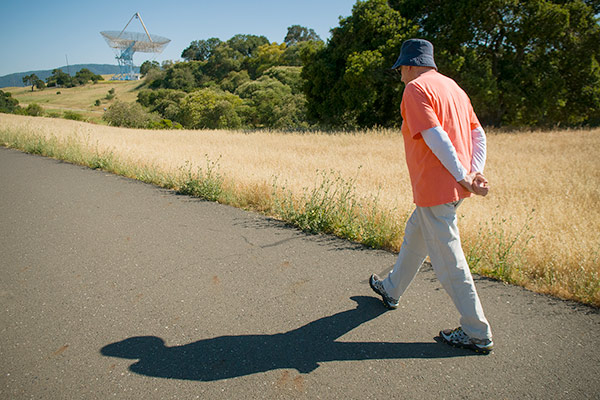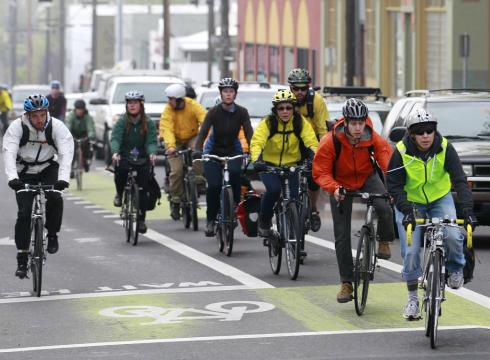Watch video
View Patrick Singleton's slides
View Ryan Dann's slides
Following the 2015 annual meeting of the Transportation Research Board, this Friday seminar will showcase some of Portland State University's student TRB research.
Presenters:
Patrick Singleton, GRA in civil and environmental engineering
The theory of travel decision-making: A conceptual framework of active travel behavior
Summary: We present a unifying conceptual framework of active travel behavior called the theory of travel decision-making. It integrates seminal travel-related concepts from economics, geography, and psychology with active travel behavior theories and empirical research. The framework abstracts an individual’s thought process around short-term travel decisions and explains the roles of activities, built environment factors, socio-demographics, attitudes and perceptions, and habit. Our primary objective is to inform travel behavior research by meeting the need for a theoretical framework capable of guiding studies on active transportation. The framework could also support active transportation planning and analysis methods by informing the development of travel forecasting tools that better represent the unique influences on walking and bicycling. This presentation summarizes the theoretical foundations of active travel behavior; presents and describes the conceptual framework and its components in detail; notes research needs; and assesses the contributions of the framework to active travel behavior theory, research, and practice.Bio: Patrick Singleton is a second-year PhD student in Civil & Environmental Engineering at Portland State University, studying under Kelly Clifton. His research spans the areas of travel behavior, transportation planning, and travel demand modeling, with a special interest in walking and bicycling. Before graduate school, Patrick earned a BS from the University of Pittsburgh and worked for several years in traffic engineering consulting. While in Pittsburgh, he also served on an advisory council to the local transit agency and was vice-president of his neighborhood association. Outside of school, you will likely find Patrick exploring and photographing his current city.
Ryan Dann, graduate student in urban studies and planning
Factors Associated with the Bicycle Commute Use of Newcomers: Analysis of the 70 Largest U.S. Cities
Bio: Ryan J. Dann is a Ph.D. student in the Urban Studies department at Portland State University. His research interests involve the travel behavior of urban newcomers, as well as the relationship between bicycle use and neighborhood change. He is currently working on a research project that focuses on location affordable housing and low-income households in the Portland Metro area.


